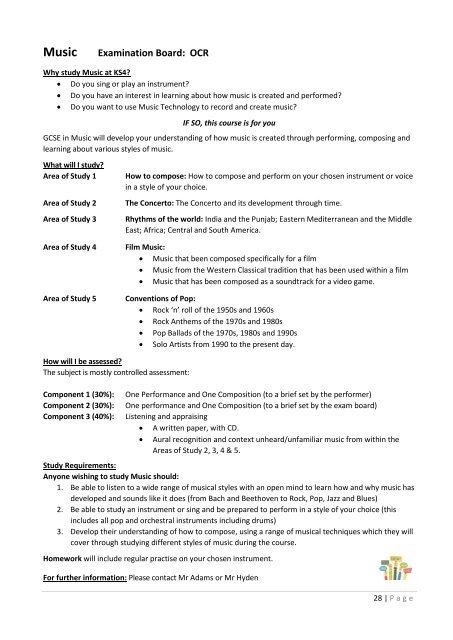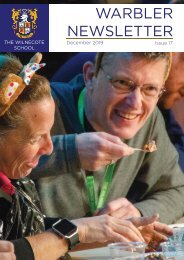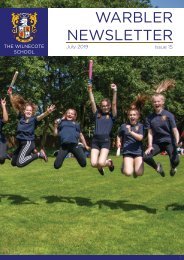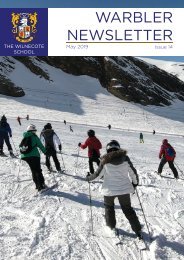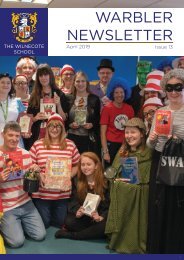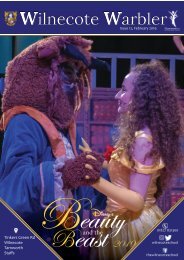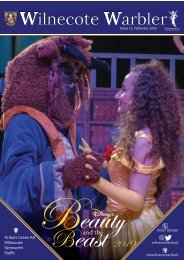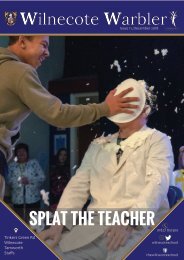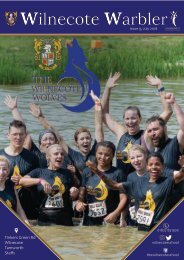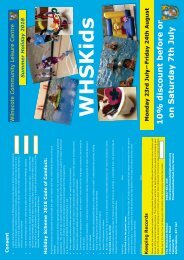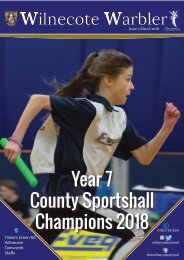Y8 Options Booklet
- No tags were found...
You also want an ePaper? Increase the reach of your titles
YUMPU automatically turns print PDFs into web optimized ePapers that Google loves.
Music<br />
Examination Board: OCR<br />
Why study Music at KS4?<br />
Do you sing or play an instrument?<br />
Do you have an interest in learning about how music is created and performed?<br />
Do you want to use Music Technology to record and create music?<br />
IF SO, this course is for you<br />
GCSE in Music will develop your understanding of how music is created through performing, composing and<br />
learning about various styles of music.<br />
What will I study?<br />
Area of Study 1<br />
Area of Study 2<br />
How to compose: How to compose and perform on your chosen instrument or voice<br />
in a style of your choice.<br />
The Concerto: The Concerto and its development through time.<br />
Area of Study 3<br />
Area of Study 4<br />
Area of Study 5<br />
Rhythms of the world: India and the Punjab; Eastern Mediterranean and the Middle<br />
East; Africa; Central and South America.<br />
Film Music:<br />
Music that been composed specifically for a film<br />
Music from the Western Classical tradition that has been used within a film<br />
Music that has been composed as a soundtrack for a video game.<br />
Conventions of Pop:<br />
Rock ‘n’ roll of the 1950s and 1960s<br />
Rock Anthems of the 1970s and 1980s<br />
Pop Ballads of the 1970s, 1980s and 1990s<br />
Solo Artists from 1990 to the present day.<br />
How will I be assessed?<br />
The subject is mostly controlled assessment:<br />
Component 1 (30%):<br />
Component 2 (30%):<br />
Component 3 (40%):<br />
One Performance and One Composition (to a brief set by the performer)<br />
One performance and One Composition (to a brief set by the exam board)<br />
Listening and appraising<br />
A written paper, with CD.<br />
Aural recognition and context unheard/unfamiliar music from within the<br />
Areas of Study 2, 3, 4 & 5.<br />
Study Requirements:<br />
Anyone wishing to study Music should:<br />
1. Be able to listen to a wide range of musical styles with an open mind to learn how and why music has<br />
developed and sounds like it does (from Bach and Beethoven to Rock, Pop, Jazz and Blues)<br />
2. Be able to study an instrument or sing and be prepared to perform in a style of your choice (this<br />
includes all pop and orchestral instruments including drums)<br />
3. Develop their understanding of how to compose, using a range of musical techniques which they will<br />
cover through studying different styles of music during the course.<br />
Homework will include regular practise on your chosen instrument.<br />
For further information: Please contact Mr Adams or Mr Hyden<br />
28 | P a g e


